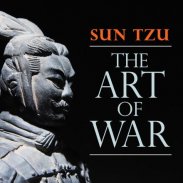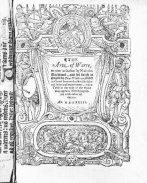






Military strategists

Description of Military strategists
Texts, audiobooks and historical info about some of military strategists: the app contains texts written by Sun Tzu, Miyamoto Musashi, Carl von Clausewitz and Niccolo Machiavelli with audio (mp3) and video added to them. So you can listen the audiobooks while reading the text or you can do either of them, depending of the moment.
It is said that some of the texts can be used in everyday life, but we let you decide that. If they can make your day(s) better it's great, and the purpose of this app is accomplished.
The Art of War, by Sun Tzu is an ancient Chinese military treatise dating from the Late Spring and Autumn Period (roughly 5th century Before Christianity). The book is attributed to the ancient Chinese military strategist Sun Tzu ("Master Sun") and it is composed of 13 chapters. Each one is devoted to an aspect of warfare and how it applies to military strategy and tactics. For almost 1,500 years it was the lead text in an anthology that would be formalised as the Seven Military Classics by Emperor Shenzong of Song in 1080. The Art of War by Sun Tzu remains the most influential strategy text in East Asian warfare and has influenced both Eastern and Western military thinking, business tactics, legal strategy and beyond. It contains a detailed explanation and analysis of the Chinese military, from weapons and strategy to rank and discipline.
Gorin no sho (The book of 5 rings), by Myiamoto Musashi is a text on kenjutsu and the martial arts in general, written by the Japanese swordsman around 1645. The book enjoys an audience considerably broader than only that of martial artists and people across East Asia: for example, some foreign business leaders find its discussion of conflict and taking the advantage to be relevant to their work in a business context. The modern-day Hyōhō Niten Ichi-ryū employs it as a manual of technique and philosophy. The 5 books are actually the teachings which Musashi preached to his students in his own dōjō. Though ideas are taken from other sources, the text is predominantly seminal.
The Art of War, by Niccolo Machiavelli was written between 1519 and 1520 and published the following year, being Machiavelli’s only historical or political work printed during his lifetime, though he was appointed official historian of Florence in 1520 and entrusted with minor civil duties. The treatise is composed as a Socratic dialogue, with the purpose, declared by Lord Fabrizio Colonna at the outset, “To honour and reward virtù, not to have contempt for poverty, to esteem the modes and orders of military discipline, to constrain citizens to love one another, to live without factions, to esteem less the private than the public good.” To these ends, Machiavelli notes in his preface, the military is like the roof of a palazzo protecting the contents.
On War (original title is Vom Kriege in German) is a book on war and military strategy by Prussian general Carl von Clausewitz (1780–1831), written mostly after the Napoleonic wars (between the years 1816 and 1830) and published posthumously by his wife Marie von Brühl in 1832. On War is actually an unfinished work; Clausewitz had set about revising his accumulated manuscripts in 1827, but did not live to finish the task.





















